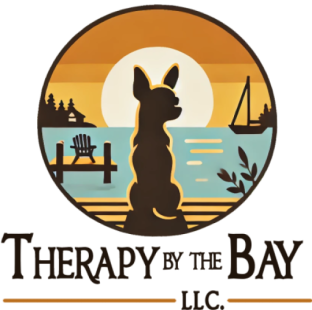Therapy Services at Therapy By The Bay LLC 🌊
Welcome to Therapy By The Bay LLC, where I specialize in helping women navigate trauma, PTSD, eating disorders, anxiety, depression, OCD, mood disorders, and Borderline Personality Disorder (BPD). If you’re looking for virtual therapy covered by insurance, you’re in the right place.
Who I Help
I provide therapy for teens and women (ages 12+) struggling with:
✔ Trauma & PTSD (Childhood Trauma, Complex PTSD, Sexual Assault)
✔ Borderline Personality Disorder (BPD) (Emotion Dysregulation, Self-Harm, Relationship Instability)
✔ Relationship Patterns & Attachment Wounds (Anxious Attachment, People-Pleasing, Abandonment Fears, Emotional Detachment)
✔ Eating Disorders (Binge Eating, Bulimia, Anorexia, Emotional Eating)
✔ Obsessive-Compulsive Disorder (OCD) (Intrusive Thoughts, Compulsions, Perfectionism)
✔ Obsessive-Compulsive Personality Disorder (OCPD) (Rigid Thinking, High Standards, Control, Difficulty Delegating)
✔ Anxiety Disorders (Generalized Anxiety, Panic Disorder, Social Anxiety)
✔ Depression & Mood Disorders (Bipolar Disorder, Major Depressive Disorder)
✔ Life Transitions & Stress (Work Burnout, College Stress, Breakups)
✔ Chronic Pain & Health Conditions (Multiple Sclerosis, Fibromyalgia, Injury Recovery, Adjusting to Physical Limitations)
Evidence-Based Therapy Approaches
Trauma & PTSD Recovery – EMDRIA-Approved, EMDR Basic Trained (In Advanced Consultation)
If you’ve experienced childhood trauma, relationship abuse, or sexual assault, you may struggle with flashbacks, emotional numbness, guilt, or hypervigilance. I use EMDR, DBT, RO-DBT, and CBT to help you process painful memories, feel safer in your body and relationships, and reduce emotional reactivity so you can move forward with more peace and control.
💠 Approaches Used: EMDR (basic trained, in consultation for full certification), DBT, RO-DBT, CBT
🎯 Goals: Reduce emotional distress, process trauma safely, and reclaim a sense of safety and control.
Borderline Personality Disorder (BPD) & Self-Harm – Evergreen C-DBT Certified
If you struggle with emotional highs and lows, impulsivity, self-harm, or intense fears of abandonment, therapy can help you learn how to regulate your emotions instead of feeling controlled by them. I use DBT and Evergreen C-DBT to build distress tolerance, emotional stability, and stronger relationship patterns.
💠 Approaches Used: DBT, Evergreen C-DBT
🎯 Goals: Decrease impulsivity, stabilize emotions, and foster secure, fulfilling connections.
Relationship Patterns & Attachment Wounds
If relationships leave you feeling anxious, disconnected, or constantly questioning your worth, you’re not alone. You may find yourself overgiving, shutting down, lashing out, or fearing abandonment—even when you try your hardest to make things work. These patterns often stem from early experiences where love felt inconsistent, conditional, or unsafe.
In therapy, we’ll explore how your past shaped your relationships and help you build the tools to feel more confident, secure, and connected.
💠 Approaches Used: DBT, C-DBT, RO-DBT, trauma-informed care, CBT
🎯 Goals: Build emotional security, strengthen boundaries, reduce reactivity, and create healthier, more balanced relationships.
Eating Disorders & Emotional Eating – Evergreen C-DBT Certified, RO-DBT Trained
If you find yourself stuck in cycles of binge eating, purging, restricting, or emotional eating, I offer an individualized approach using CBT, DBT, Evergreen C-DBT, and RO-DBT. RO-DBT is especially helpful for eating issues related to overcontrol, perfectionism, or emotional inhibition.
💠 Approaches Used: CBT, DBT, Evergreen C-DBT, RO-DBT
🎯 Goals: Heal your relationship with food, increase emotional flexibility, reduce shame, and strengthen self-worth.
Obsessive-Compulsive Disorder (OCD) – CBT & RO-DBT Approaches
If your mind is constantly flooded with intrusive thoughts, compulsions, or “what ifs,” therapy can help you gain clarity and freedom. I use CBT and RO-DBT to address rigid thinking, overcontrol, and the anxiety beneath compulsive behaviors.
Note: I do not offer ERP but can refer you to ERP-trained providers as needed.
💠 Approaches Used: CBT, RO-DBT
🎯 Goals: Lessen intrusive thoughts, reduce compulsions, and build cognitive and emotional flexibility.
Obsessive-Compulsive Personality Traits (OCPD) – RO-DBT & CBT Focused
If you feel stuck in rigid routines, have trouble letting go of control, or feel constantly frustrated when others don’t meet your standards, therapy can help. These patterns often come from early experiences where being “perfect” felt safer than being vulnerable. I use RO-DBT and CBT to soften control patterns, reduce frustration, and create space for connection, flexibility, and rest.
💠 Approaches Used: RO-DBT, CBT
🎯 Goals: Reduce rigidity, challenge all-or-nothing thinking, and build more balanced, flexible ways of functioning.
Anxiety & Panic Disorders
If anxiety keeps you up at night, causes racing thoughts, or makes everyday interactions feel exhausting, therapy can help you slow your mind and reconnect with a sense of calm. I use CBT, DBT, and RO-DBT to help you challenge anxious thinking, build self-soothing skills, and feel more confident handling stress.
💠 Approaches Used: CBT, DBT, RO-DBT
🎯 Goals: Reduce anxiety, increase distress tolerance, and restore emotional confidence.
Depression & Mood Disorders
If you’re feeling numb, hopeless, or disconnected from yourself and your motivation, you’re not alone. Depression can be heavy—but it doesn’t have to define you. I integrate CBT, DBT, and supportive therapy to help you find meaning, restore energy, and reconnect with the parts of you that still want more from life.
💠 Approaches Used: CBT, DBT, supportive therapy
🎯 Goals: Improve mood, rebuild motivation, and strengthen long-term emotional resilience.
Chronic Pain & Health Conditions
Living with conditions like Multiple Sclerosis, Fibromyalgia, or injury-related limitations can feel isolating and overwhelming. I help clients cope with the emotional impact of chronic illness, regain a sense of control, and find meaning even when life looks different than expected.
💠 Approaches Used: CBT, DBT, supportive therapy
🎯 Goals: Build coping strategies, process grief related to health, and live a meaningful life with greater emotional balance.
Life Transitions & Stress Management
Whether you’re navigating college, a career shift, a breakup, or burnout, transitions can bring uncertainty and self-doubt. I help clients clarify their values, manage stress, and find stability through change using CBT, DBT, and supportive, goal-focused care.
💠 Approaches Used: CBT, DBT, supportive therapy
🎯 Goals: Reduce overwhelm, clarify direction, and increase confidence during periods of transition.
What to Expect in Therapy
First Appointment
🔹 We’ll explore your concerns, therapy goals, and any questions you may have.
🔹 I prioritize building trust and a strong therapeutic alliance.
Structured, Evidence-Based Treatment
🔹 Sessions integrate CBT, DBT, and EMDR to tailor therapy to your specific needs.
🔹 Therapy is personalized, goal-oriented, and backed by clinical research.
Follow Up Appointments
🔹 Twice weekly, weekly or bi-weekly sessions to build momentum in your healing journey (decided at your first appointment).
🔹 Adjustments based on progress and personal comfort levels.
Ready to Start?
Therapy is an investment in your mental health, emotional well-being, and future. If you’re struggling with anxiety, depression, trauma, BPD, eating disorders, OCD, or life stressors, I’m here to help.
🌊 Take the first step toward healing today.
Crisis and Immediate Help
If you are in crisis or need immediate help, please call 911 or go to the nearest emergency room. You can also call or text the Suicide & Crisis Lifeline at 988 for support.

